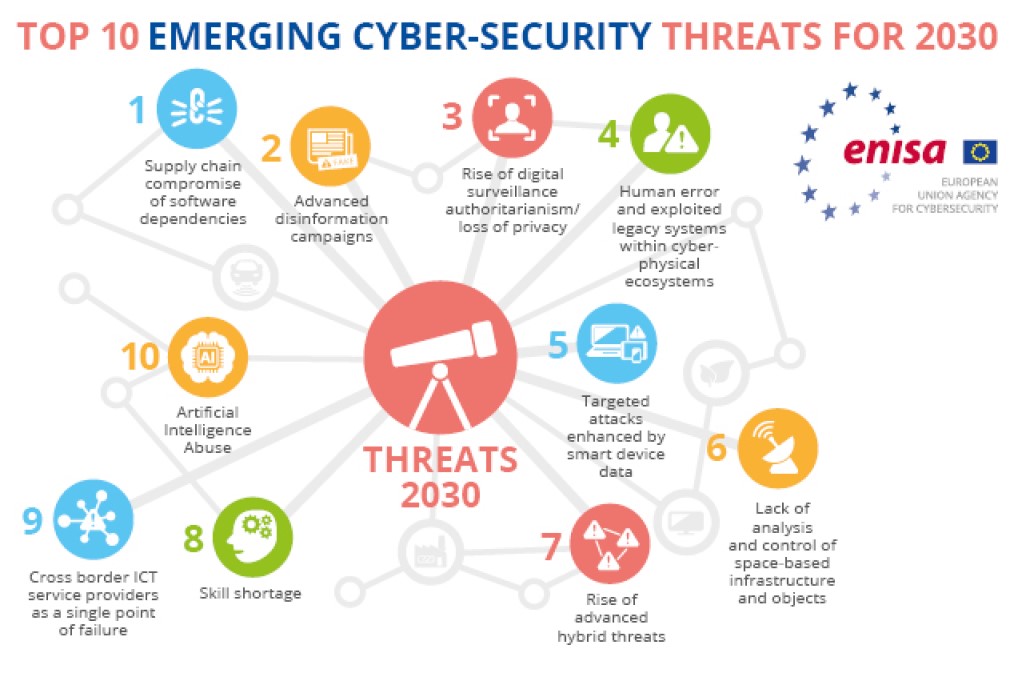The Insider Threat: North Korean Cyberattacks Targeting US Remote Employment

Table of Contents
Exploiting Remote Access Vulnerabilities
North Korean hackers leverage the widespread adoption of remote access tools to infiltrate US companies employing remote workers. Remote Desktop Protocol (RDP), Virtual Private Networks (VPNs), and other similar technologies, while essential for remote work, become potent attack vectors when improperly secured. Weak or outdated security practices create significant opportunities for exploitation.
-
Weak or stolen credentials: A common tactic involves targeting weak passwords or employing credential stuffing attacks using stolen credentials obtained from previous data breaches. Implementing strong password policies and multi-factor authentication (MFA) is crucial to mitigate this risk.
-
Phishing and spear-phishing campaigns: North Korean actors often employ sophisticated phishing and spear-phishing campaigns, crafting convincing emails designed to trick employees into revealing their credentials or downloading malware. These campaigns often target specific individuals within an organization, leveraging publicly available information to personalize their attacks.
-
Unpatched software and outdated security protocols: Many remote access tools and underlying systems are vulnerable to known exploits. Failing to regularly update software and maintain current security protocols leaves organizations open to attack. Regular patching and vulnerability scanning are essential preventative measures.
-
Lack of multi-factor authentication (MFA): The absence of MFA significantly weakens security. Even if credentials are compromised, MFA adds an extra layer of protection, making it far more difficult for attackers to gain access.
Successful attacks targeting remote access vulnerabilities often result in significant financial and data losses. Examples include ransomware attacks crippling operations, data exfiltration leading to intellectual property theft, and the compromise of sensitive customer information resulting in hefty fines and reputational damage. These cybersecurity breaches can have devastating consequences.
Targeting Critical Infrastructure through Remote Workers
Remote workers in critical infrastructure sectors – energy, finance, healthcare, and government – are particularly vulnerable to North Korean cyberattacks. The potential for widespread disruption and damage is significantly higher due to the interconnected nature of these systems.
-
Potential for widespread disruption and damage: A successful attack on a remote worker in a critical infrastructure sector could have cascading effects, disrupting essential services and causing significant economic and societal harm. This makes these sectors prime targets for state-sponsored actors like those in North Korea.
-
Examples of past attacks targeting similar sectors: Numerous past attacks demonstrate the potential for significant damage. Attacks on power grids, financial institutions, and healthcare providers have highlighted the vulnerability of these sectors to sophisticated cyberattacks. Analyzing these past incidents provides valuable insight into potential attack vectors and mitigation strategies.
-
The use of malware specifically designed for data exfiltration and sabotage: North Korean actors often utilize custom-built malware designed to steal data, disrupt operations, or even cause physical damage. These sophisticated attacks often go undetected for extended periods.
-
The role of insider threats (compromised employees): Compromised employees, either through coercion or unwitting participation, can provide attackers with valuable access and facilitate attacks. This highlights the importance of robust employee security awareness training and robust vetting processes. Supply chain attacks also represent a significant threat.
These attacks often involve cyber warfare tactics, employing ransomware and sophisticated data exfiltration techniques to maximize impact.
The Role of Cryptocurrency in North Korean Cyberattacks
North Korean actors increasingly utilize cryptocurrency to launder the proceeds of their cyberattacks and maintain anonymity. The decentralized and pseudonymous nature of cryptocurrency makes it an attractive tool for illicit activities.
-
Ease of using cryptocurrency for illicit activities: The ability to send and receive cryptocurrency across borders without significant oversight makes it a valuable tool for money laundering. Tracing transactions can be challenging, hindering law enforcement efforts.
-
Methods employed to trace and track cryptocurrency transactions: While challenging, blockchain analysis and collaboration between law enforcement agencies and cryptocurrency exchanges are crucial in tracing and tracking cryptocurrency transactions linked to North Korean cyberattacks.
-
Challenges faced by law enforcement in combating this aspect of cybercrime: The global and decentralized nature of cryptocurrency presents significant challenges for law enforcement. International cooperation is essential to effectively combat this aspect of cybercrime.
-
The role of decentralized exchanges and mixing services: Decentralized exchanges and cryptocurrency mixing services further obfuscate the origin and destination of funds, complicating tracking efforts.
Advanced Persistent Threats (APTs): A North Korean Specialty
North Korea is known for its sophisticated Advanced Persistent Threats (APTs). These attacks involve long-term infiltration and data exfiltration, often remaining undetected for extended periods.
-
The stealthy nature of APTs and their ability to evade detection: APTs employ various techniques to evade detection, including the use of custom malware, zero-day exploits, and living-off-the-land techniques.
-
Techniques used to maintain persistent access to compromised systems: Attackers establish persistent access through backdoors and other covert mechanisms, allowing them to maintain control over compromised systems for extended periods.
-
The use of custom malware and zero-day exploits: North Korean actors often develop custom malware and utilize zero-day exploits to bypass security defenses. Malware analysis is crucial to understanding and mitigating these threats.
-
The implications for long-term data theft and espionage: The long-term nature of APTs allows for the exfiltration of large volumes of sensitive data, including intellectual property, trade secrets, and personal information. This facilitates cyber espionage activities and provides a significant strategic advantage.
Conclusion
The threat of North Korean cyberattacks targeting US remote employment is significant and growing. The exploitation of remote access vulnerabilities, targeting of critical infrastructure, and the use of cryptocurrency for illicit financial gain present a complex challenge. Strengthening cybersecurity measures, implementing robust MFA, regularly updating software, and providing comprehensive security awareness training for remote employees are crucial steps in mitigating this risk. Staying vigilant and proactively addressing the vulnerabilities associated with North Korean cyberattacks is vital for protecting both individual businesses and national security. Invest in robust cybersecurity strategies to protect your organization from the ever-evolving threat of North Korean cyberattacks and similar sophisticated attacks.

Featured Posts
-
 Gravenberch Reveals New Training Methods At Liverpool
May 29, 2025
Gravenberch Reveals New Training Methods At Liverpool
May 29, 2025 -
 Morgan Wallens Get Me To God Merch Post Snl Exit Sales Explode
May 29, 2025
Morgan Wallens Get Me To God Merch Post Snl Exit Sales Explode
May 29, 2025 -
 Improved Self Care Gravenberchs Key To Success At Liverpool
May 29, 2025
Improved Self Care Gravenberchs Key To Success At Liverpool
May 29, 2025 -
 Manchester United Transfer News Free Agent In Sight
May 29, 2025
Manchester United Transfer News Free Agent In Sight
May 29, 2025 -
 Celestial Guardians Pokemon Tcg Expansion And Special Event Announced
May 29, 2025
Celestial Guardians Pokemon Tcg Expansion And Special Event Announced
May 29, 2025
Latest Posts
-
 Anticorps Bispecifiques Sanofi Investit Dans L Innovation De Dren Bio
May 31, 2025
Anticorps Bispecifiques Sanofi Investit Dans L Innovation De Dren Bio
May 31, 2025 -
 Acquisition Sanofi Dren Bio Nouvelles Perspectives En Immunotherapie
May 31, 2025
Acquisition Sanofi Dren Bio Nouvelles Perspectives En Immunotherapie
May 31, 2025 -
 Dren Bio Et Sanofi Partenariat Pour Le Developpement D Anticorps Bispecifiques
May 31, 2025
Dren Bio Et Sanofi Partenariat Pour Le Developpement D Anticorps Bispecifiques
May 31, 2025 -
 Sanofi Acquisition D Anticorps Bispecifiques De Dren Bio
May 31, 2025
Sanofi Acquisition D Anticorps Bispecifiques De Dren Bio
May 31, 2025 -
 Sanofi Acquiert Les Anticorps Bispecifiques De Dren Bio Un Accord Majeur
May 31, 2025
Sanofi Acquiert Les Anticorps Bispecifiques De Dren Bio Un Accord Majeur
May 31, 2025
